In the NICU - Neonatal Care
The Team
A team of skilled specialised professionals work in the neonatal unit. These staff will do everything they can to help your baby get better.
Staff in the neonatal unit are highly trained in this specialist field to provide the care that your baby needs to get well, get better, and get home to you. They also care about your feelings as parents. The team in the neonatal unit know that nothing can replace your love, but you can be reassured that your baby will be well cared for with tenderness and respect, especially when you are not there.
Parents are the main carers for their babies when they are in the neonatal unit. The neonatal team in the neonatal unit is led by the neonatal doctors and neonatal nurses. In addition, there are many other health professionals who may be available, as well as other support staff including household, administration, catering and portering.
A chaplain is also available to provide spiritual support at your request.
“Staff will do everything they can to help your baby get better.”
“Staff in the neonatal unit like babies and know how to give them the care they need to get well.”
Doctors involved in neonatal care
The consultant neonatologist has completed many years of detailed training in the care of small or sick babies. Every baby in the neonatal unit will have their own named consultant, and there is a consultant on call all of the time.
Specialist Registrar (SpR): The specialist registrars are undergoing structured training in neonatology and paediatrics. They have at least three years of experience, with some specialist registrars having a lot more experience.
Registrar (Reg): The registrars are also doing training in neonatology and paediatrics. They have at least three years of experience, with some registrars having a lot more experience.
Senior House Officer (SHO): The SHOs are early on in their training in neonatology and paediatrics, and go to the deliveries of babies who may need extra help when they are born and check well babies on the postnatal ward. The SHOs work under supervision in the neonatal unit.
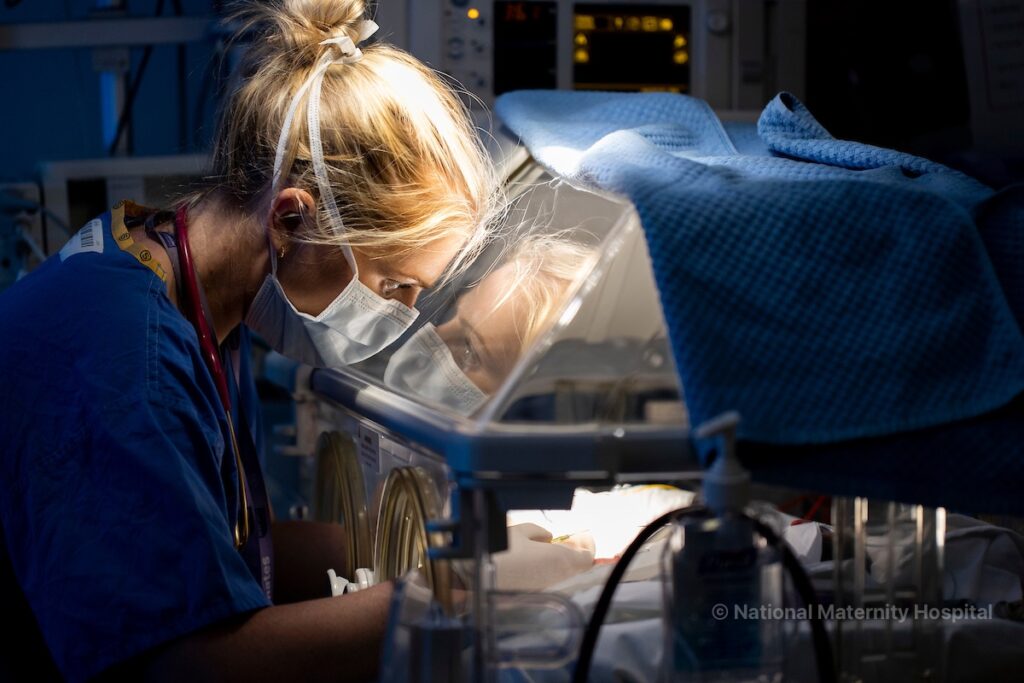
Specialist doctors who take part in neonatal care
In addition to these doctors who care for your baby on a daily basis, there are other specialist doctors who may come to see your baby or be consulted about your baby’s care.
- Cardiologist – a heart specialist.
- Endocrinologist – a specialist in diseases relating to hormones.
- Gastroenterologist – a specialist in disorders of the gastro-intestinal tract (gut) and liver.
- Geneticist – a specialist in genetic disorders and inherited conditions.
- Haematologist – a specialist in diseases of the blood.
- Microbiologist – a specialist in the management of infections.
- Nephrologist – a specialist in diseases of the kidneys.
- Ophthalmologist– an eye specialist.
- Radiologist – a specialist in reviewing x-rays and taking ultrasounds and scans.
- Surgeon – performs surgical procedures. Surgeons may also specialise in different areas, e.g. a neuro-surgeon specialises in surgery of the brain and nervous system.
Nurses involved in neonatal care
Nurses take care of your baby’s day-to-day nursing care. Nurses are at the babies’ bedsides all of the time so that they can assess and recognise if your baby is unwell.
Clinical Nurse/Midwife Managers (CNM/CMM): Depending on the hospital, the nurse manager of the unit will be a CNM/CMM 2 or 3. Every shift of nurses in the neonatal unit will have a shift leader. The shift leaders will be CNM/CMM 1 or 2.
There may also be specialist nurses/midwives involved in your baby’s care.
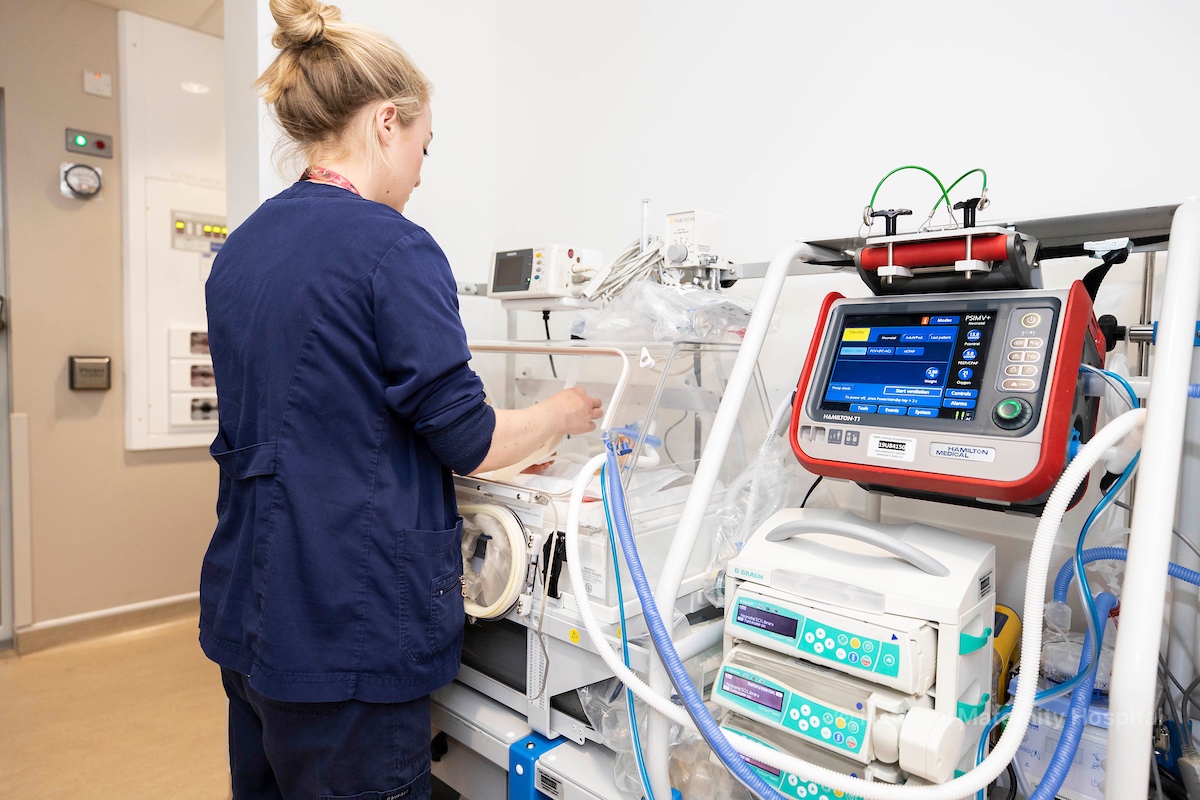
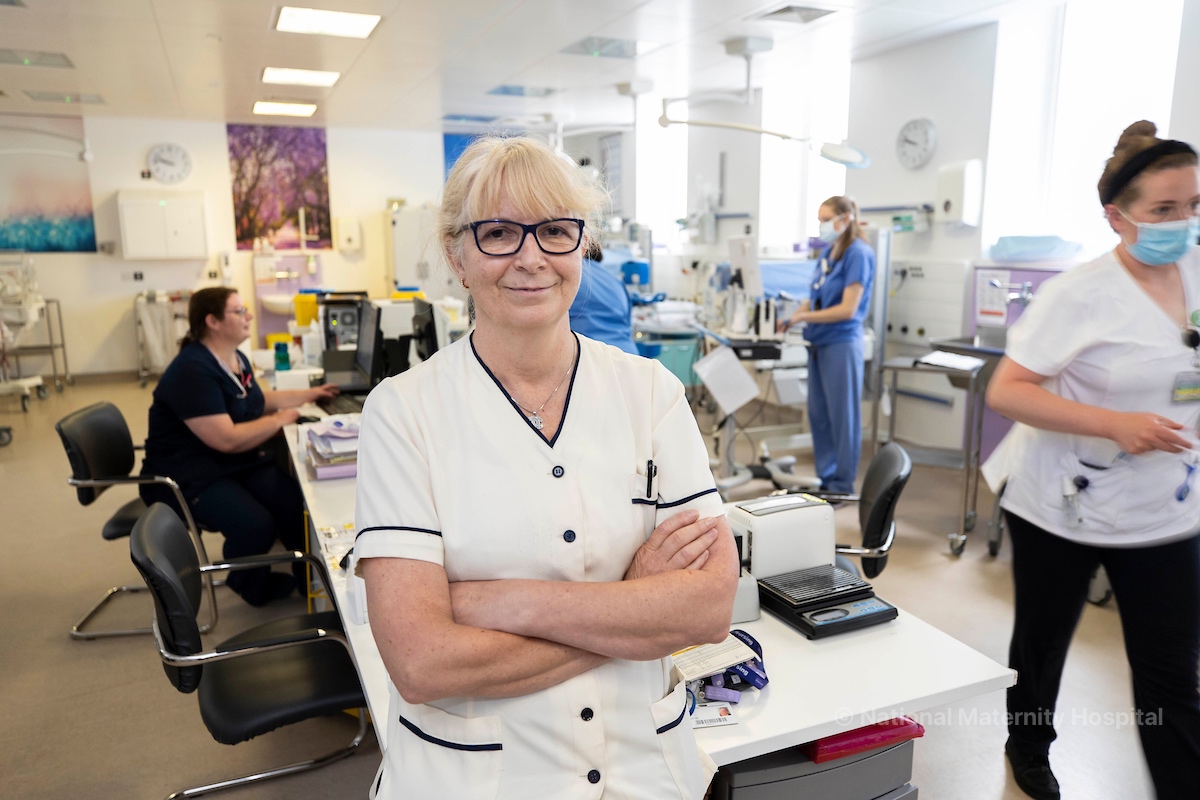
Specialist nurses/midwives who contribute to neonatal care
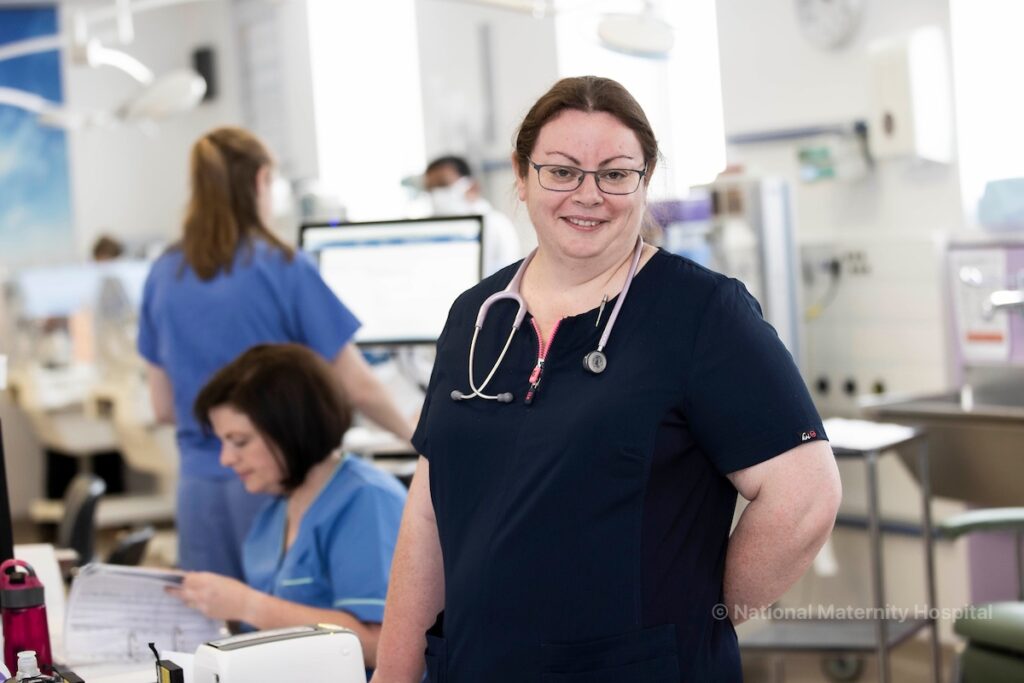
Advanced Nurse Practitioner
Registered Advanced Nurse Practitioner in Neonatology (RANP Neonatology) – has advanced training in the medical needs of babies in the neonatal unit.
Neonatal discharge clinical nurse specialist (CNS) – offers support for parents getting ready for their babies’ discharge.
Lactation (breastfeeding) clinical nurse/midwife specialist (CNS/CMS) – supports mothers who require help with breastfeeding or expressing (pumping) breast milk.
Other health professionals involved in neonatal care.
In addition to doctors and nurses, there are many other health professionals who contribute to the care of your baby. These staff may not always be available in your baby’s neonatal unit but they may be consulted if their input is required
Evaluates and manages hearing problems.
Prepares and maintains medical equipment.
Provides mental health support for mothers.
Provides guidance on developmental care and follow-up.
Provides guidance on nutrition and growth.
Assess babies for hearing impairment.
Performs tests on blood and other specimens.
Provides support counselling, information on entitlements, practical and legal issues such as guardianship, and assistance in accessing supports in the community. If you wish to meet with a Medical social worker, ask a member of staff.
Further information on support available is outlined in ‘Support services’. LINK.
Specialises in supporting your baby’s development.
Gives information and advice on the medicines prescribed for your baby.
Takes blood samples.
Specialist physiotherapists involved with the NICU and part of the developmental care team involved in positioning and handling, neurobehavioural, motor (movement), musculoskeletal and sensory assessment to help babies reach their optimal developmental goals (milestones )
Takes x-rays.
Specialises in development of oral skills, sucking, swallowing, feeding by mouth and early communication skills.
Performs ultrasounds on baby.
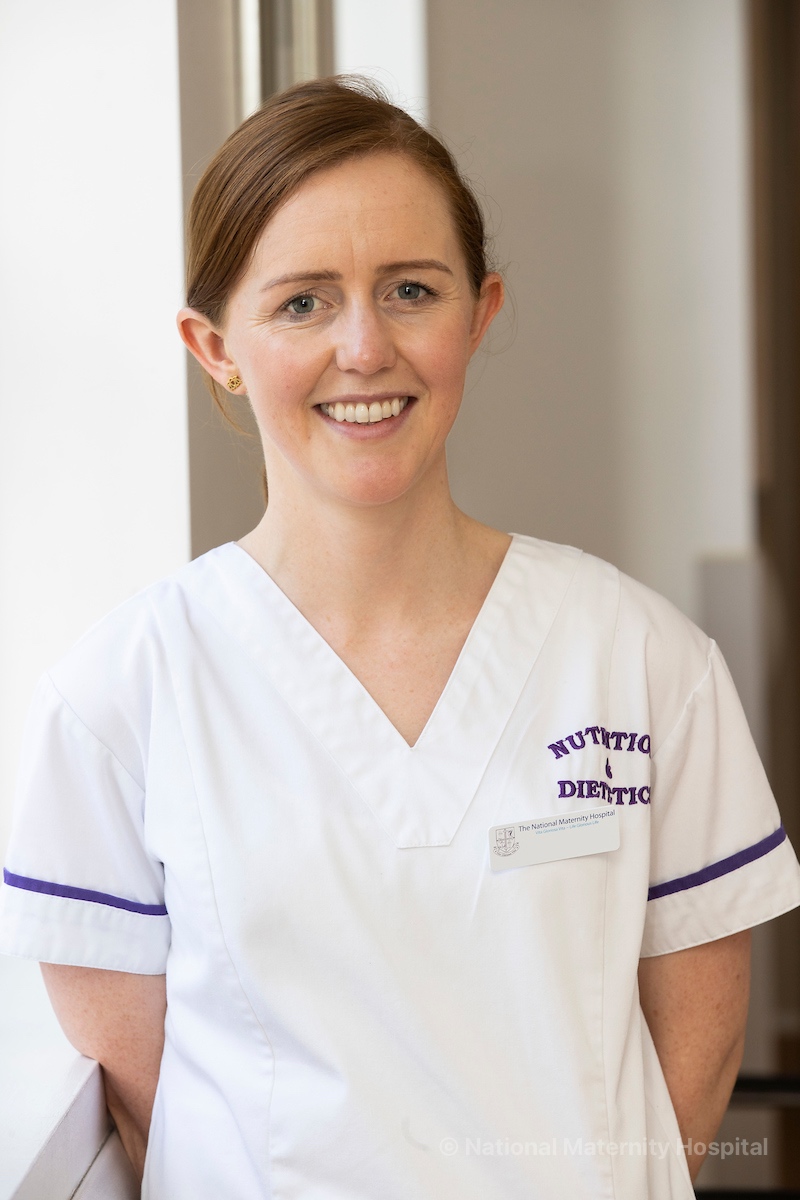
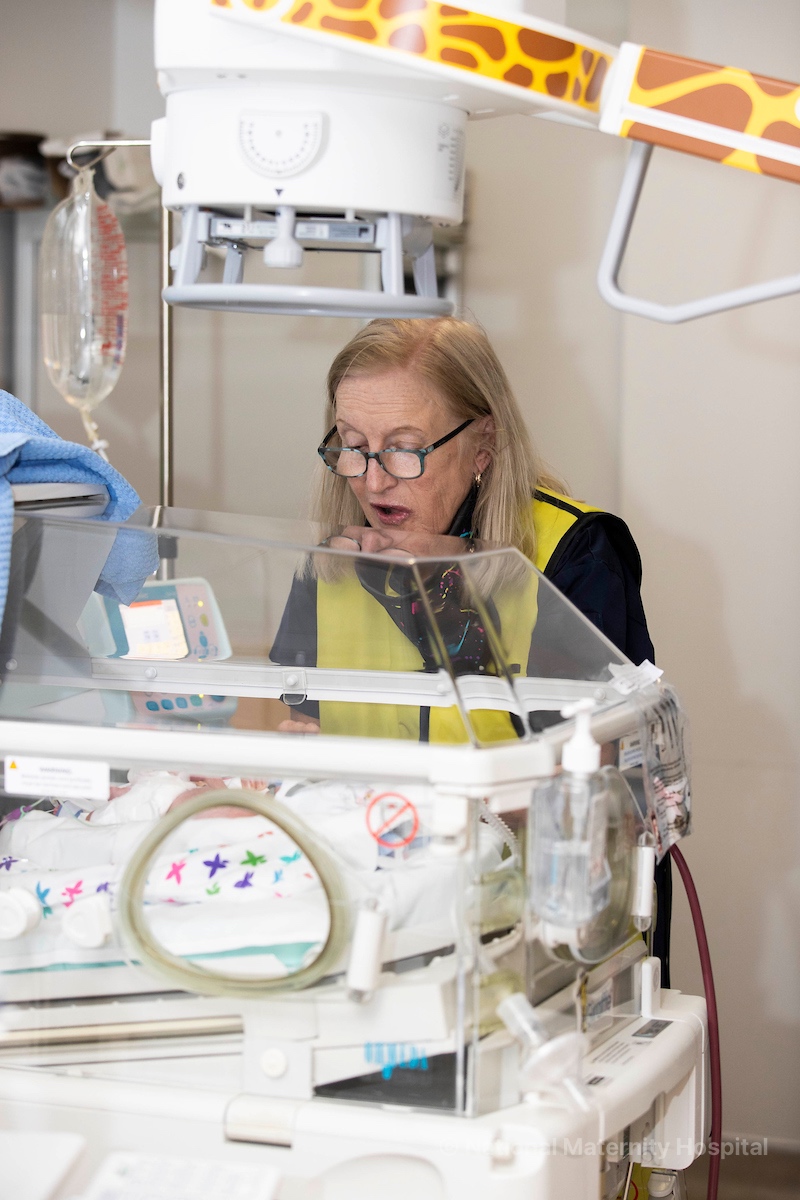
Other neonatal unit staff
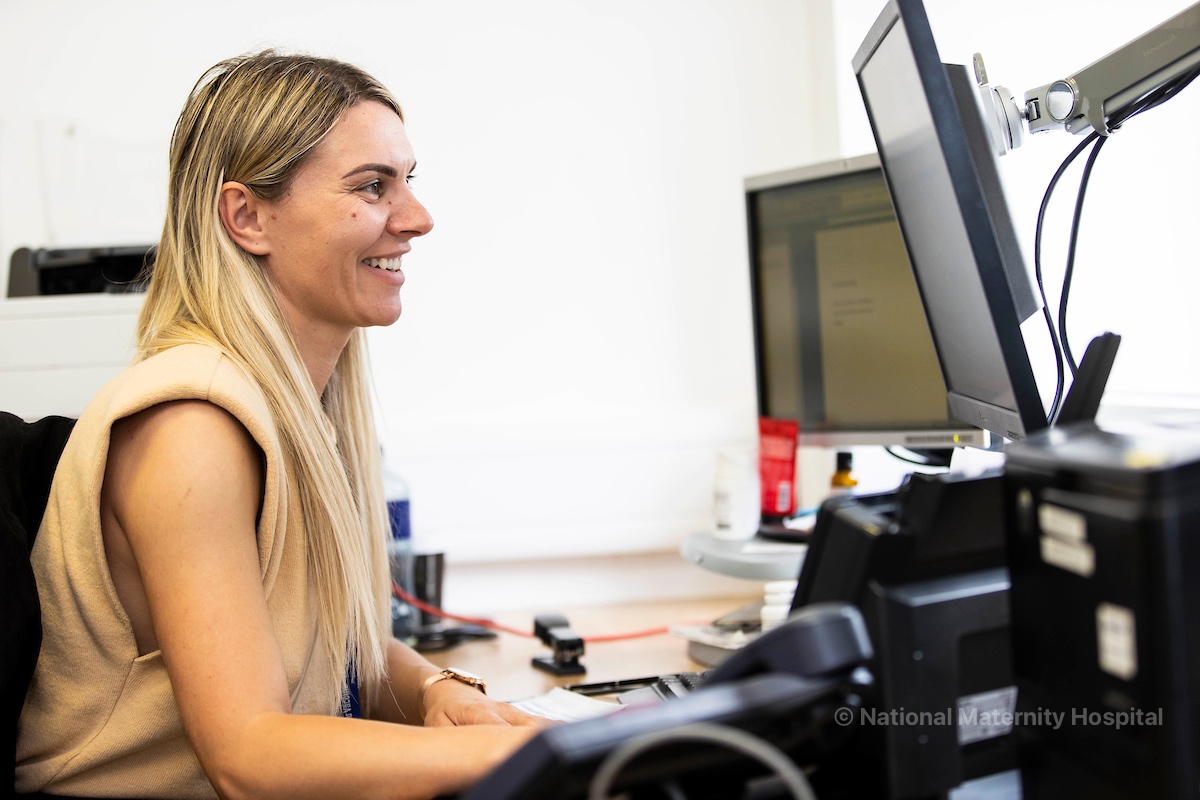
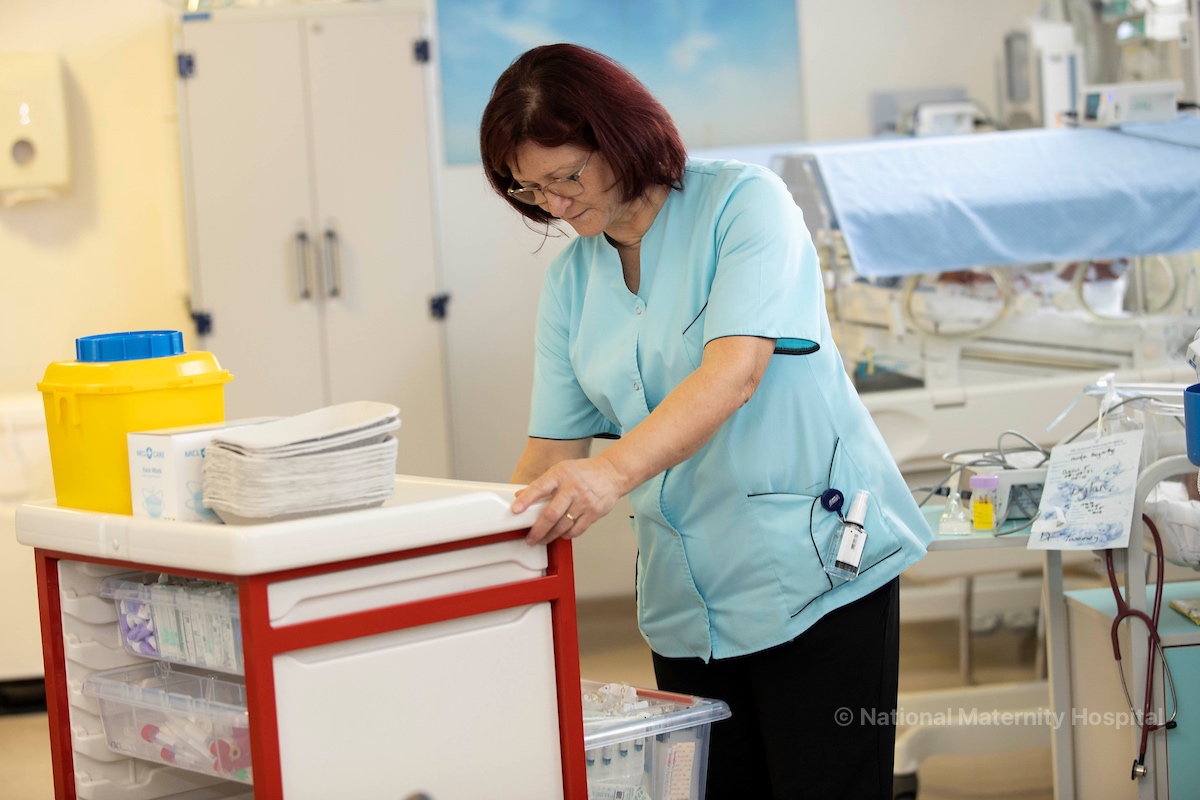
Household/Cleaning staff help to keep the neonatal unit clean.
Porters bring things to and from the neonatal unit.
HCA/MCA/MTAs keep the neonatal unit stocked up with the equipment and other things that we need to care for your baby. They also help take care of the equipment in the neonatal unit. In some neonatal units the HCA/MCA/MTA assist nurses with the care of well babies.
The secretaries help take care of the records that are kept on the babies, and help the team to communicate with other hospitals and doctors, including your GP.
Students
All of the neonatal units in Ireland are based in hospitals where doctors, nurses and other healthcare professionals train. There will be medical and nursing or midwifery students present, and there may be other healthcare professional students in the neonatal unit. Your baby is always under the care of a consultant doctor and a trained nurse.
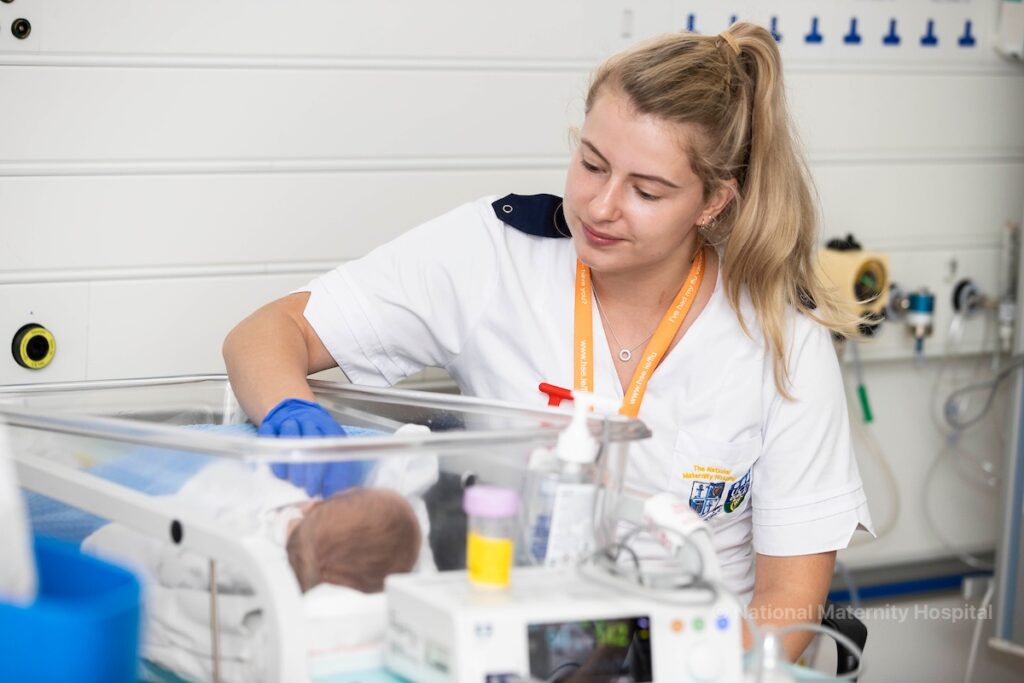
Student Nurse
Research in neonatal care
We want to give the best care to all babies. We study the care, which we give babies so that we can improve. Studying care in this way is called research. Doctors or nurses or other team members may ask your permission for your baby to take part in a research study. We greatly appreciate babies taking part in research studies. If your baby does not take part in a study, it will not affect how they or you are treated.


